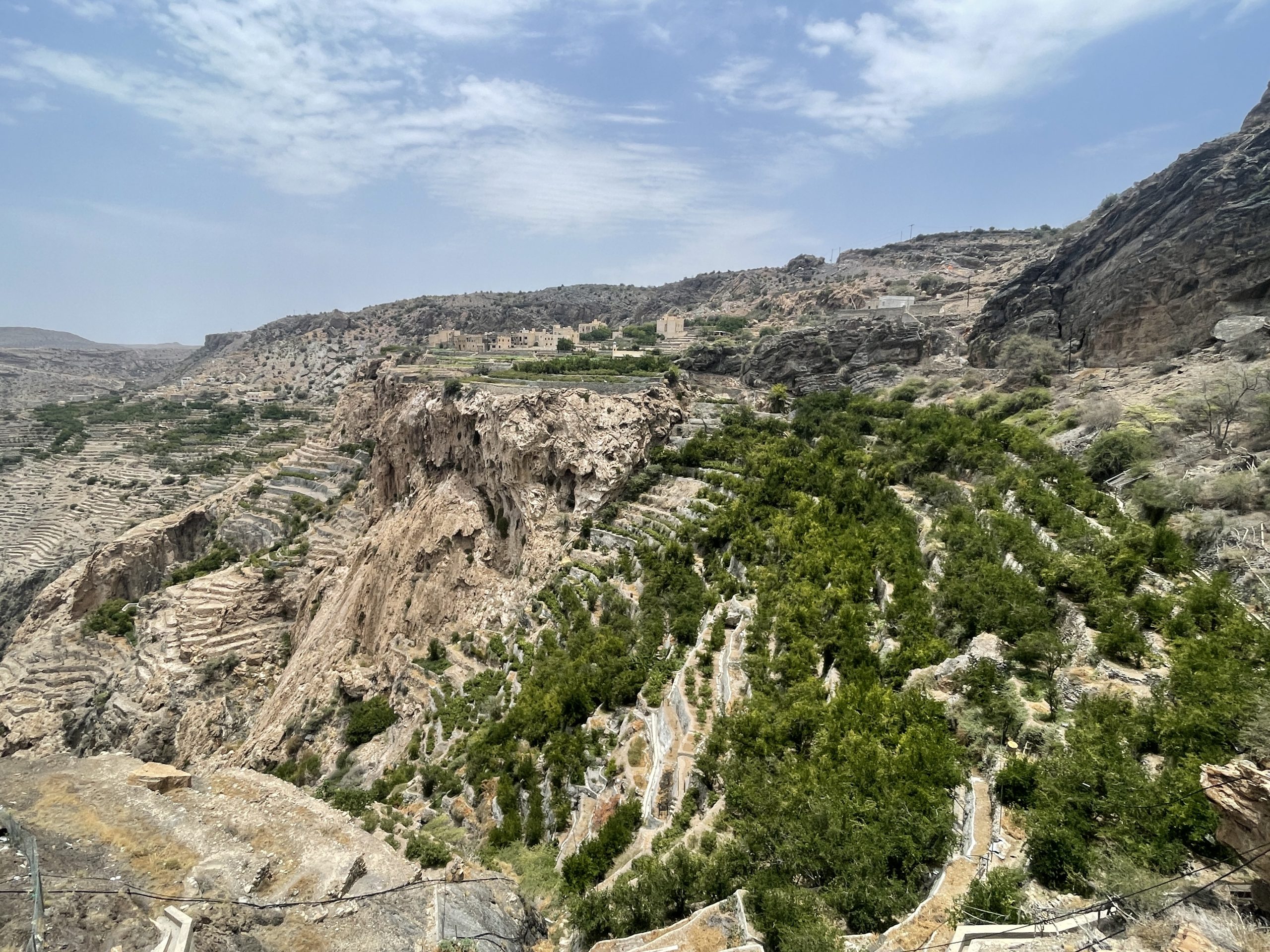Introduction to Jebel Akhdar
Jebel Akhdar, aptly named the "Green Mountain," stands as a magnificent natural wonder in the heart of Oman. Rising to an impressive 3,000 meters above sea level, this mountain range offers a refreshing escape from the desert heat with its cool climate and lush vegetation. Unlike the arid landscapes that dominate much of Oman, Jebel Akhdar surprises visitors with its terraced farms, fruit orchards, and rose gardens that thrive in this unique microclimate.
The Perfect Mountain Experience
A journey to Jebel Akhdar is more than just a tour—it's an immersion into a different side of Oman that few travelers get to experience. As you ascend the winding mountain roads, you'll witness dramatic changes in scenery, temperature, and vegetation. The plateau is home to ancient villages perched on cliff edges, offering panoramic views that stretch for miles across rugged terrain.
Our guided tours take you through the most spectacular viewpoints, including the famous Diana's Point, named after the late Princess of Wales who visited this spot in 1986. You'll also explore traditional villages like Al Ayn and Wadi Bani Habib, where time seems to stand still amidst centuries-old stone houses.
Minimum Age and Requirements
Minimum Age: 8 years old
This adventure is suitable for most visitors, but we recommend a minimum age of 8 years due to the nature of the terrain and the length of some walking trails. Children must be accompanied by adults at all times.
Physical Requirements:
- Moderate fitness level recommended
- Ability to walk on uneven terrain for 1-2 hours
- Comfortable with high altitudes (up to 3,000 meters)
- No severe heart or respiratory conditions
What's Included in Your Tour
Our comprehensive Jebel Akhdar tour package ensures you can focus on enjoying the experience while we handle all the details:
- Transportation: Comfortable 4WD vehicle transport from your accommodation in Muscat
- Expert Guide: Knowledgeable English-speaking guide with extensive local expertise
- Refreshments: Bottled water throughout the day and a traditional Omani lunch at a scenic location
- Entrance Fees: All required permits and entrance fees to protected areas
- Safety Equipment: First aid kit and communication devices for remote areas
- Photography Stops: Scheduled stops at the most picturesque viewpoints
- Cultural Interactions: Visits to local villages and opportunities to meet residents
What's Excluded
For complete transparency, please note these items are not included in the tour price:
- Personal travel insurance
- Specialized photography equipment
- Souvenirs and personal purchases
- Gratuities for guides and drivers (optional but appreciated)
- Specialized dietary meals beyond our standard offerings
- Additional activities not listed in the itinerary
Seasonal Variations: When to Visit
Jebel Akhdar offers distinct experiences throughout the year, each with its own charm:
Spring (March-May)
The undisputed best time to visit Jebel Akhdar is during the damask rose season from late March through May. The mountain slopes transform into fragrant rose terraces, and you can witness the traditional rose water distillation process that has been practiced for generations.
Summer (June-August)
While the coastal areas of Oman experience extreme heat, Jebel Akhdar remains pleasantly cool with temperatures averaging 20-25°C (68-77°F). This makes it a perfect summer retreat, though occasional afternoon rain showers may occur.
Fall (September-November)
The pomegranate harvest season brings vibrant red fruits to the terraced farms. The weather is stable with clear skies, making it ideal for photography and hiking.
Winter (December-February)
Temperatures can drop to 5-10°C (41-50°F) at night, with occasional frost at the highest elevations. The crisp air offers exceptional visibility for landscape photography, though some trails may be chilly in the early morning.
Conservation and Responsible Tourism
Jebel Akhdar's ecosystem is fragile and protected by the Omani government. Our tours operate with strict adherence to conservation guidelines:
- We follow designated paths to prevent soil erosion
- No collection of plants, rocks, or artifacts is permitted
- We practice a "leave no trace" policy with all waste
- Water conservation is essential and respected
- Interaction with local communities is conducted respectfully


